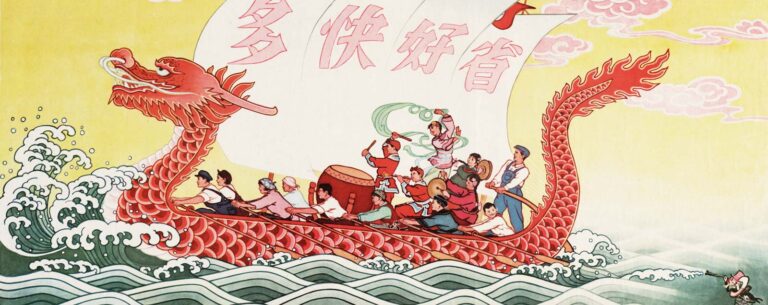A report from Financial TimesThe Beijing correspondent should make the entire Western world (and the Chinese too if they were allowed to) laugh. It is hardly an exaggeration to say that the leaders of Western countries, and first and foremost the American government, were scared to death of the Chinese government and the so-called economic power that it rules with its visible fist. The U.S. government has worked hard to change its trade policy and adopt Chinese-style industrial policies. THE Financial TimesThe report describes how the development of Chinese AI and much else in that country relies on “Xi Jinping Thought” (Ryan McMorrow, “China’s latest response to OpenAI is ‘Chat Xi PT’», May 22, 2024); some excerpts:
The country’s new major linguistic model has drawn lessons from its leader’s political philosophy, known as “Xi Jinping Thought on Socialism with Chinese Characteristics for a New Era,” as well as other official documents provided by the Cyberspace Administration of China. …
The establishment of the LLM follows extensive efforts by Chinese officials to disseminate Xi’s ideas on politics, economics and culture in various formats. …
The CAC (Cyberspace Administration of China), which led the way in issuing rules for generative AI and introduced licensing, requires generative AI providers to “embody core socialist values” and states that generated content cannot “contain any content that subverts state power.” . …
The entire training draws heavily on government regulations and policy documents, state media reports and other official publications, according to the parts reviewed by the Financial Times.
One of the dozens of text documents in the data package contains 86,314 mentions of Xi Jinping. “Let us unite more closely around the Party Central Committee, with Comrade Xi Jinping at its core,” one line reads.
We must “ensure that, in our thoughts, policies and actions, we are always in tune with the Party Central Committee, with General Secretary Xi Jinping at its core,” says another.
What we know about history and the invention of widespread prosperity through the Industrial Revolution in the wake of the Enlightenment, as well as economic theory, strongly suggests that neither imperial dynasties nor the thought of Mao Zedong, neither that of Xi Jinping, nor any guru cult, nor any central system The committee can produce such progress. It appears that poor Chinese may be forced to maintain their relative GDP per capita at maximum, which is about a quarter of the US level. That of Joël Mokyr A culture of growth (Princeton University Press, 2018) offers interesting perspectives on the demands of general prosperity and individual freedom, which cannot be separated for long. Two of my short articles also addressed this question: “Fearing the Leviathans with feet of clay» (EconLog, November 29, 2022) and “Why is the great enrichment declared in the West“, Regulationsummer 2023.
In a future era more rational than ours (let’s be optimistic), everyone will understand how China failed again when its post-imperial state, from Mao to Xi, attempted to marry tyranny and economic planning with prosperity general. Remember Mao’s Great Leap Forward led by the visible fist of the state. Of course, a tyrannical state can still be very dangerous to freer individuals in freer countries, because it diverts a large proportion of the (relatively meager) resources of its unfortunate people to military power.
*****************************
I borrowed the featured image for this article from a remarkable collection of propaganda posters dating from Mao’s Great Leap Forward (1958-1961): BG E16/33 (posterschinoises.net, IISH collection); see also https://chineseposters.net/posters/e16-33 And https://chineseposters.net/about/faqs#rights. The image is also reproduced below.

A Great Leap Forward propaganda poster: BG E16/33 (chineseposters.net, IISH collection)


